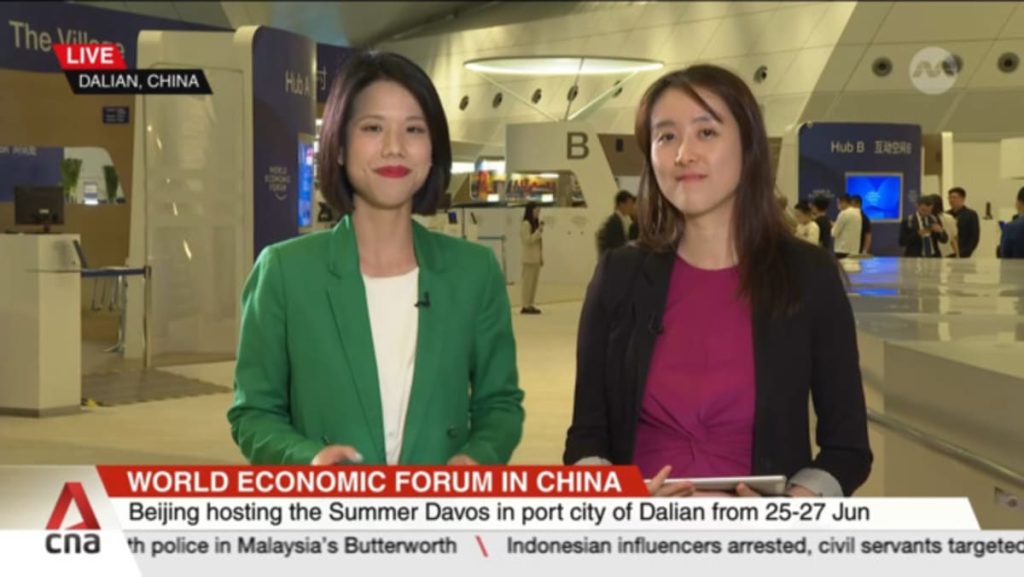The World Economic Forum in Dalian, China is focusing on key issues such as electric vehicles, urban mobility, and climate change. These topics are becoming increasingly important as the use of green energy rises globally. Experts at the forum are calling for governments to establish a binding framework to regulate the development of artificial intelligence, which is still in its early stages. CNA’s Tan Si Hui and Olivia Siong are reporting from the event, highlighting the urgency of addressing these pressing issues.
In recent years, there has been a significant increase in the use of green energy, both in China and around the world. This shift towards more sustainable energy sources is crucial in combating climate change and reducing carbon emissions. The focus on electric vehicles and urban mobility at the World Economic Forum reflects the growing recognition of the importance of transitioning towards cleaner forms of transportation. By promoting the adoption of electric vehicles and more efficient urban planning, countries can work towards a more sustainable future.
One of the key challenges facing the development of artificial intelligence is the lack of a comprehensive regulatory framework. With AI technology still in its early stages, experts at the forum are emphasizing the need for governments to establish binding regulations to guide its development. This will help ensure that AI is used responsibly and ethically, while also addressing concerns about issues such as data privacy and security. By setting clear guidelines for the use of AI, policymakers can help shape a future where this technology benefits society as a whole.
The World Economic Forum in Dalian is a platform for global leaders to discuss and address pressing issues such as climate change, urban mobility, and the development of artificial intelligence. By bringing together experts from various fields, the forum provides an opportunity to collaborate and exchange ideas on how to tackle these challenges. The discussions at the forum highlight the interconnectedness of these issues and the need for holistic solutions that consider the economic, social, and environmental impacts of different policies and technologies.
As countries around the world strive to meet their climate goals and reduce their carbon footprints, the transition to green energy sources and more sustainable forms of transportation is becoming increasingly important. Electric vehicles offer a promising solution to reduce emissions from the transportation sector, while more efficient urban planning can help create cleaner and more livable cities. The discussions at the World Economic Forum underscore the need for a coordinated approach to address these challenges and transition towards a more sustainable future.
In conclusion, the World Economic Forum in Dalian is shining a spotlight on key issues such as electric vehicles, urban mobility, and climate change, as well as the development of artificial intelligence. With the use of green energy on the rise globally, there is a growing awareness of the need to transition towards more sustainable forms of energy and transportation. By establishing binding regulations for AI development, policymakers can help ensure that this technology is used responsibly and ethically. The forum provides a platform for global leaders to come together and collaborate on solutions to these pressing challenges, highlighting the importance of taking a holistic approach to creating a more sustainable future.













